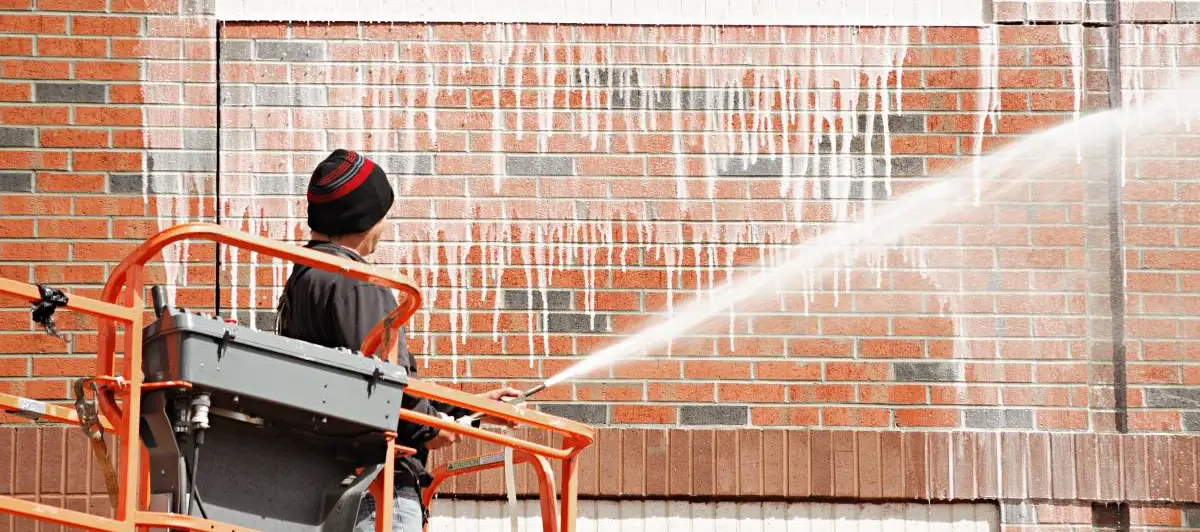Masonry structures, known for their durability and aesthetic appeal, are common in Charleston and many other regions. However, like any building material, masonry requires regular maintenance to preserve its integrity and appearance. Whether you have a brick, stone, or concrete masonry structure, following a routine maintenance plan can extend its lifespan and prevent costly repairs. Here are some essential tips for maintaining your masonry structures.
Why Masonry Maintenance Matters

Masonry structures are built to last, but neglect can lead to significant issues over time. Proper maintenance helps:
- Prevent Water Damage: Moisture infiltration can weaken masonry and lead to structural issues.
- Enhance Aesthetic Appeal: Regular upkeep keeps your masonry looking its best.
- Increase Longevity: A well-maintained structure can last for generations.
- Avoid Costly Repairs: Timely maintenance can prevent minor issues from escalating into major repairs.

Routine Inspection

Check for Signs of Damage
Regular inspections are crucial for identifying potential issues early. Look for signs such as:
- Cracks: Hairline cracks may not be alarming, but larger cracks can indicate underlying problems.
- Spalling: This occurs when the surface of the brick or stone begins to flake or chip away, often due to moisture issues.
- Mold or Mildew: These can indicate water retention issues, which can damage masonry over time.
- Loose or Missing Mortar: This can lead to water infiltration and weaken the structure.
Inspect Surrounding Areas
Pay attention to the surrounding environment as well. Ensure gutters are clear, downspouts direct water away from the foundation, and landscaping does not hold moisture against the masonry.
Cleaning Your Masonry

Regular Cleaning
Dirt, algae, and other debris can accumulate on masonry surfaces. Regular cleaning helps maintain its appearance and prevents damage. Consider the following:
- Pressure Washing: Use a pressure washer to remove stubborn stains and dirt. Ensure the pressure is set appropriately to avoid damaging the masonry.
- Chemical Cleaners: For tough stains, use appropriate masonry cleaners. Always follow the manufacturer’s instructions and test in a small area first.
- Moss and Algae Removal: Remove moss or algae promptly to prevent damage. A mixture of water and vinegar can effectively kill these growths.
Avoid Harsh Chemicals
Harsh chemicals can damage masonry surfaces. Always opt for pH-neutral or specifically designed masonry cleaning products to preserve the integrity of the materials.
Repairing Damaged Areas

Repointing
Repointing involves removing and replacing damaged mortar between masonry units. This is crucial for maintaining structural integrity and preventing water intrusion.
- Identify Loose Mortar: Look for areas where the mortar is crumbling or missing.
- Use the Right Mortar Mix: Ensure you use a mortar mix compatible with your masonry type.
- Hire a Professional: While some homeowners may tackle repointing, hiring a masonry contractor in Charleston can ensure the job is done correctly.
Replacing Damaged Units
If individual bricks or stones are cracked or damaged, consider replacing them to maintain the overall integrity of the structure. Always match the new materials with the existing ones for a cohesive look.
Sealing and Waterproofing

Applying Sealant
Applying a masonry sealant can provide a protective barrier against moisture, preventing water damage and staining. Here’s how:
- Choose the Right Sealant: Select a breathable sealant designed for masonry to allow moisture to escape while keeping water out.
- Apply in Ideal Conditions: Sealants should be applied in dry conditions to ensure proper adhesion.
Regular Waterproofing
Waterproofing is essential, especially in areas with heavy rainfall. Regularly check the waterproofing on your masonry structures and reapply as needed.
Landscaping Considerations

Proper Drainage
Ensure that landscaping directs water away from your masonry structures. Poor drainage can lead to moisture accumulation and damage. Here are a few tips:
- Install Drains: Consider adding drainage solutions like French drains to redirect water away from the foundation.
- Maintain Grading: Ensure the ground slopes away from your structure to prevent water pooling.
Plant Selection
When landscaping near masonry structures, choose plants that do not retain excessive moisture or roots that could damage the foundation.
Conclusion

Maintaining your masonry structures in Charleston is essential for their longevity and aesthetic appeal. Regular inspections, cleaning, and timely repairs can prevent minor issues from becoming significant problems. Additionally, proper sealing and landscaping can further protect your masonry from damage. If you’re unsure about any maintenance tasks, consider consulting a professional masonry contractor in Charleston for expert advice and services.
By implementing these tips, you can ensure that your masonry structures remain beautiful, durable, and safe for years to come.
FAQs
How often should I inspect my masonry structures?
It’s recommended to inspect masonry structures at least once a year, and more frequently in areas with harsh weather.
Can I clean my masonry with a pressure washer?
Yes, but ensure you set the pressure appropriately to avoid damaging the masonry. Consider using a fan spray nozzle.
What should I do if I find cracks in my masonry?
Minor cracks may be filled with a suitable masonry filler, but larger cracks should be assessed by a professional masonry contractor.
Is it necessary to seal my masonry?
Yes, sealing helps protect against moisture infiltration and staining, prolonging the life of your masonry.
Can I do repointing myself?
While it’s possible, hiring a professional masonry contractor ensures proper techniques and materials are used for long-lasting results.
